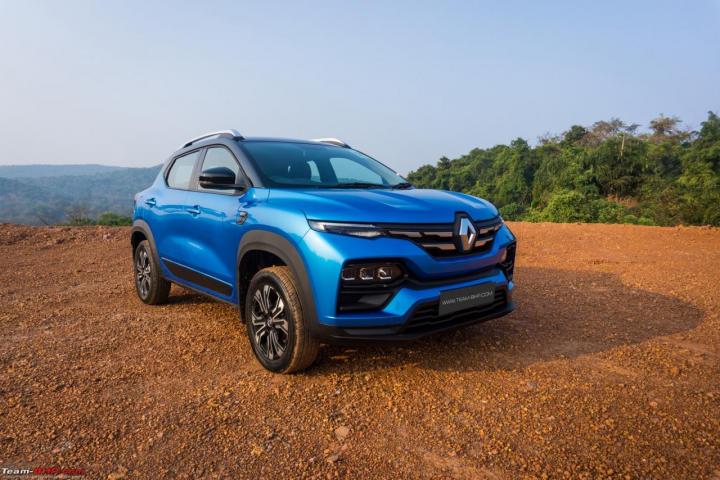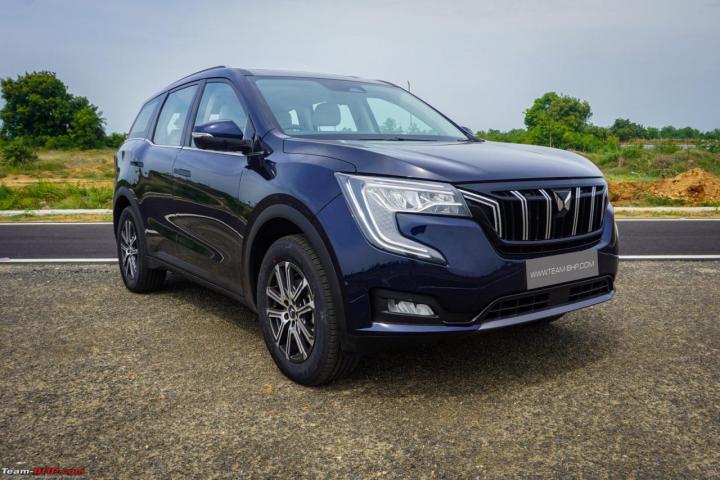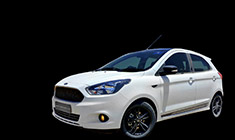News
Cars in India: Huge price delta between top & base variants justified?
For example, the base variant of the Renault Kiger costs Rs 6.85 lakh whereas its top-end model retails at Rs 12.03 lakh.
BHPian Ragsk747 recently shared this with other enthusiasts.
In today's car scene, the manufacturers advertise their cars at launch with a lower base price. For some cars, the difference between the base variant and the top variant is almost 2x.
I wonder if the cost is justified? Any views from experts?
For example
Renault Kiger Base variant RXE MT costs Rs 6.85L whereas its top variant RXZ CVT Turbo retails at Rs 12.03L.
Similar case with several other cars like the XUV700, Creta, etc.
Here's what GTO had to say about the matter:
I have no problem with this. It's about giving customers the choice. However, what I do have a problem with is the blatant "bait & switch". Many times, we see the base variant being launched at a very attractive starting price, but it's never available in the showroom. Its sole purpose was to show a VFM image and bring customers into the showroom. Once in, they realise the base variant isn't being dispatched by the factory at all. Or it is in tiny, namesake numbers.
By the way, top variants costing twice the price of base variants is prevalent across segments. At the higher end too, you'll see the Maybach S-Class & Maybach GLS costing twice that of their more "regular" siblings. Then, of course, we have the //M & AMG versions that cost 2 - 3X the regular cars.
Here's what BHPian Dr.AD had to say about the matter:
I do not see this as a problem at all. The 2x cost difference comes due to the wide variations in engine options, transmission options, and other features. Basically, this just means a wide range of choices to the end customers. And I think that is definitely good news for the end customer.
Whether the cost is justified or not is for each individual to decide. There can never be a universal answer to that question. Someone may find the base variant price to be justified and may buy that. Someone else may find the top variant cost (2x the base variant) justified and may buy that. But the good news is both get their own choices.
I personally feel multiple engine+gearbox choices are a great thing and I love to have a choice of what engine + gearbox works for me. For example, I really like that the newly launched Slavia has a 1.5TSi + 6-speed MT option. If I were to buy a Slavia, that would be my configuration. But I am aware that most others would take the 1.5TSi + DSG combo. And it is great that they have that choice. And then some others would take the 1.0 TSi option (as seen in our recent poll on that topic). And it is again great that they have that option too.
Such wide variations in product prices based on configurations are not uncommon in other things as well. For example, when you configure a laptop computer, depending on the choice of CPU, GPU, RAM size and screen resolution (among other things), the price can easily double compared to the base configuration. And most laptop buyers like that they can configure the laptop as per their needs and their budget. Nothing wrong with that. So why would this be a concern if cars come with similar configuration options and price variations?
So in short, more choices for customers is something that we, as customers, should welcome. A wider band of the price range is good for customers. I do not see any problem with this trend.
Here's what BHPian hellmet had to say about the matter:
I see this as a personally confusing trend as well. Cars are now coming equipped with a lot of gizmos and features, special editions, and multiple engine options - NA, Turbo, CNG - and this spreads the variants' pricing across 2-3 segments.
Kia Carens' top variant, for example, is almost 2X the base variant. The base variants are a lure into getting you to believe that the car is VFM, but on the shop floor, you'll end up spending big ones once you realize the base engine and feature list are terrible.
Also, for someone like me who prefers less choice, this strategy irks me personally. As an example, I used to be a fan of Apple's simple product offering, but ever since they introduced a zillion iPad variants, I lost all interest in the tablet. I've been away from the Indian car market and when I look at it now, I'm unsure which segment's car I'm looking at. Plus, the fact that almost all new cars are now "SUVs" doesn't help my stupid brain.
I still prefer Maruti's simple pricing strategy and also why I like Punch's pricing (as an example) as it only has one engine and a handful of variants.
Here's what BHPian The Rationalist had to say about the matter:
One thing that I don’t like is not selling automatic options in lower models, it’s like excluding many customers from automatics. The first company to equip lower models with automatics will definitely get very good numbers and goodwill. Look at Volkswagen and Skoda sales, they have sold the same number of cars in 2011 and 2021! Absolutely no improvement, in fact, the sales were lower! And still, they are hesitant to equip Slavia & Virtus 1.5 AT in base models. They really have a myopic view of the market. They think the sales of top models will be affected, let it be. The more the number of cars sold, the more visibility and chance of retaining when they upgrade.
Check out BHPian comments for more insights and information.


















.jpg)




